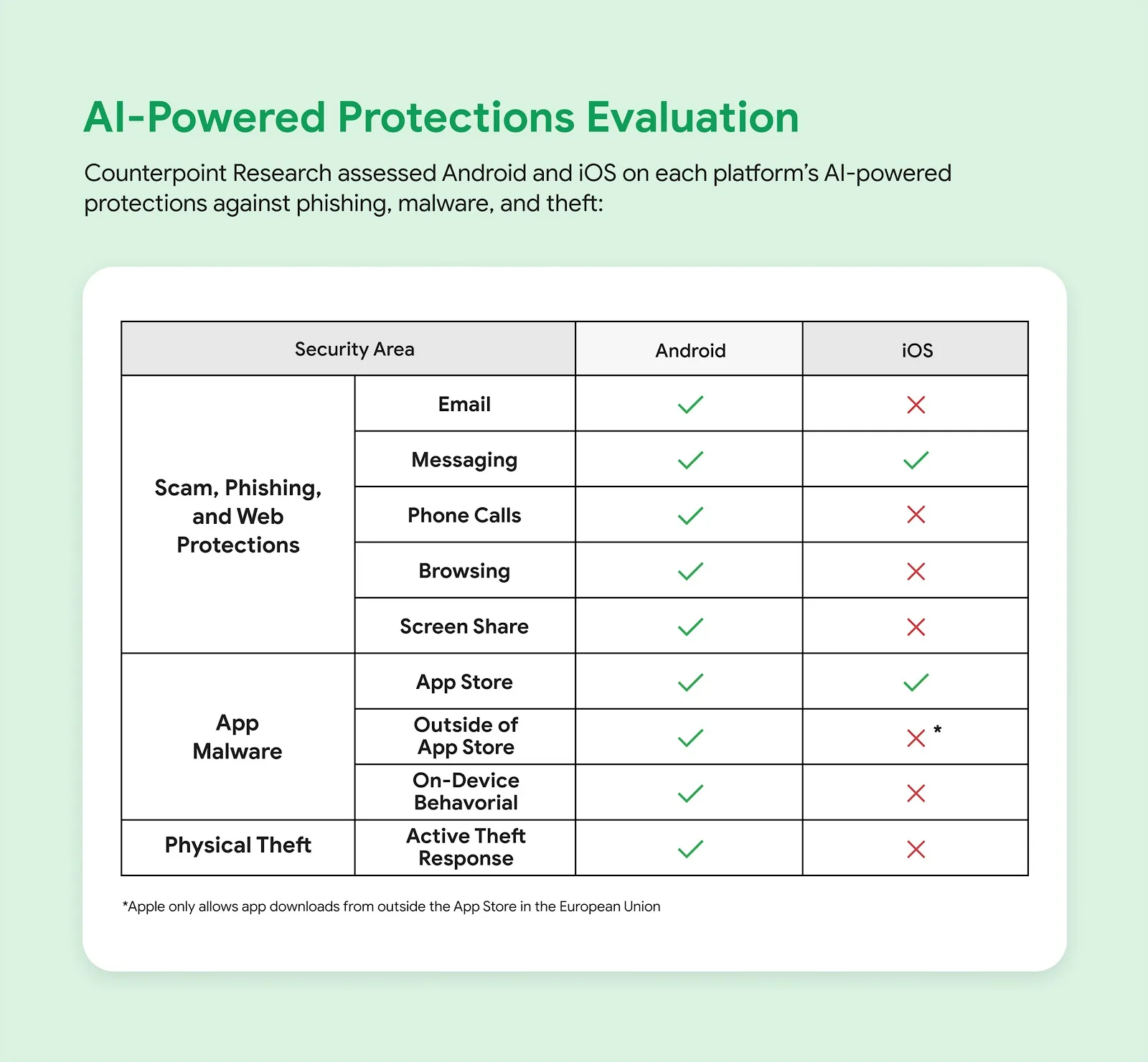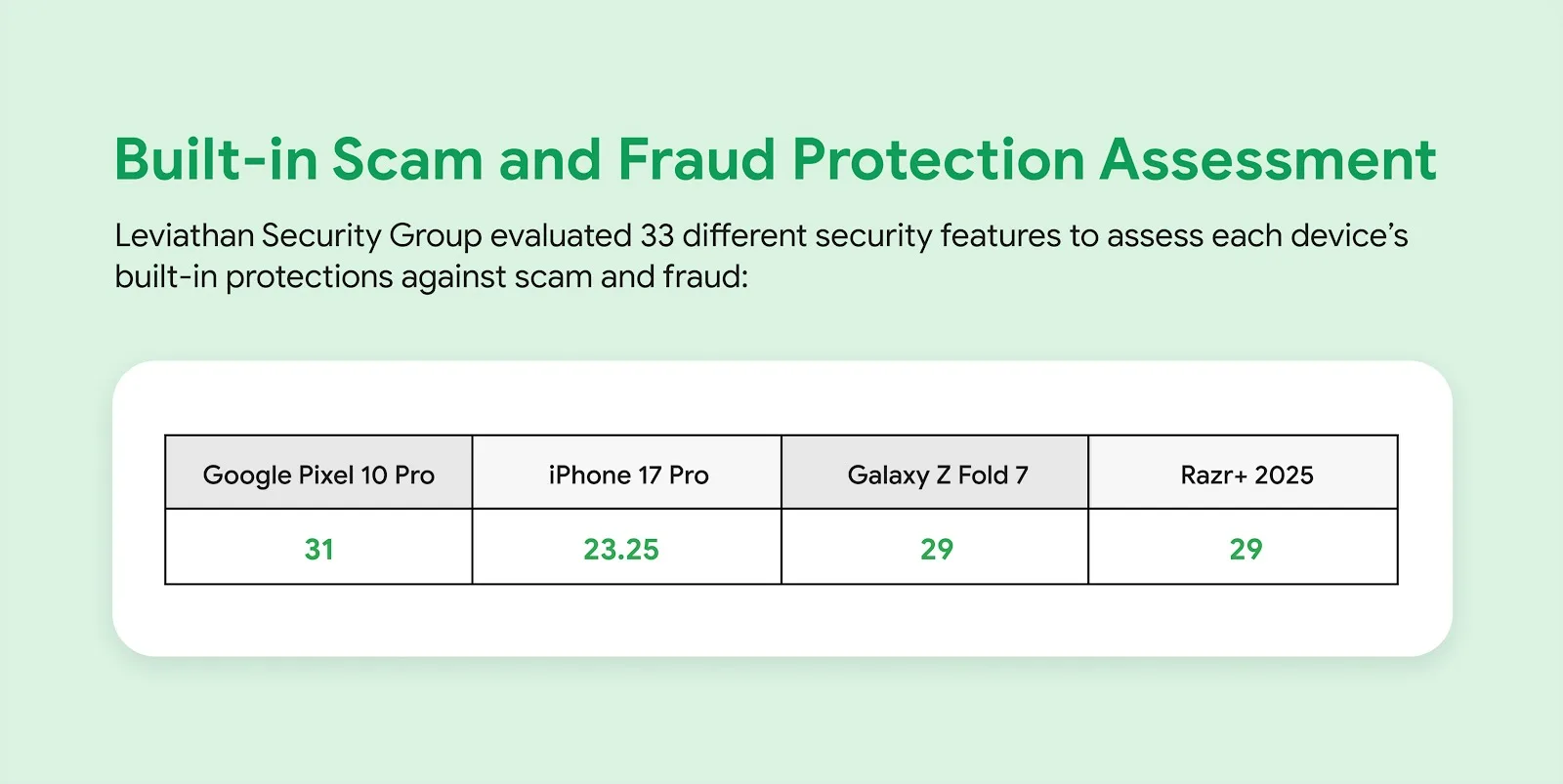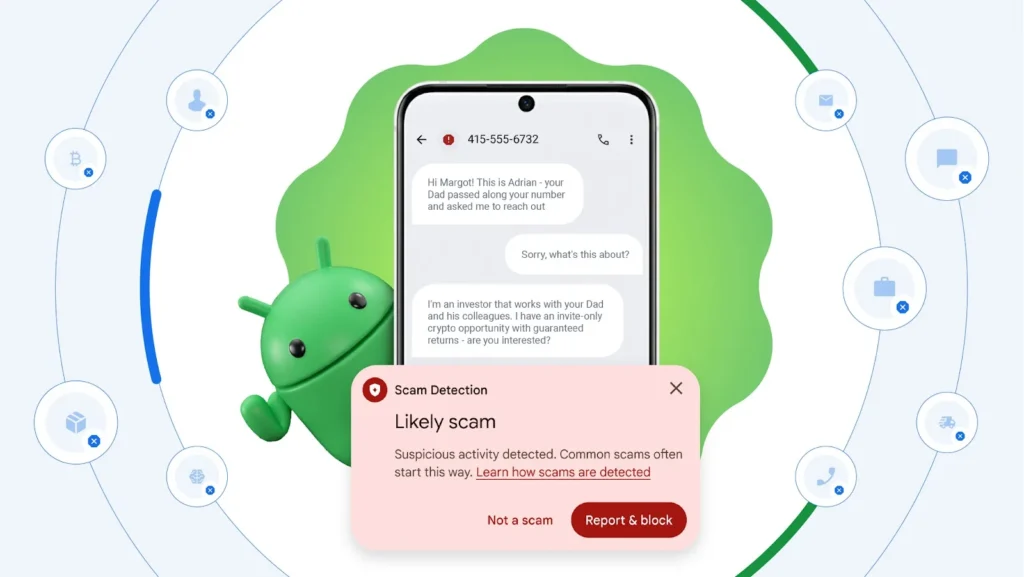Android blocks 10 billion scams per month, security against phishing
As part of the conclusion of Cybersecurity Awareness Month, Google unveiled how Android actively protects its users from mobile scams, one of today’s most prevalent digital threats.
In 2025, AI-assisted fraud resulted in over $400 billion in global losses, a record figure according to industry estimates.
Android: Proactive Protection Powered by AI
Thanks to its multilayer security systems and Google’s artificial intelligence, Android blocks over 10 billion suspicious calls and messages each month and has recently neutralized more than 100 million numbers through its RCS security checks.

These protections operate on multiple levels—from filtering SMS and blocking fraudulent calls to behavioral detection—intercepting scams before they reach the user.
Android Users Feel Safer Than iPhone Users
A study conducted by Google and YouGov among 5,000 users in the United States, India, and Brazil reveals a clear trend: Android inspires more confidence regarding security against mobile scams.

Here are some notable findings:
- Android users were 58% more likely than iPhone users to report receiving no fraudulent SMS in the week prior to the survey.
- Pixel users were 96% more likely than iPhone owners to have received no fraudulent SMS.
- iPhone users were 65% more likely than Android users to have received three or more fraudulent messages per week.
- Android users were 20% more likely to rate scam protection as “very effective.”
- Lastly, iPhone users were 150% more likely to report that their device did not block a scam attempt.

These results confirm a clear perception: users feel safer on Android, particularly with Google Pixel smartphones.
Independent Assessments Confirm Android’s Superior Defenses
According to a study by Counterpoint Research, Android smartphones provide the most comprehensive AI-based protection, covering 10 key areas:
email filtering, browsing security, behavioral detection, etc. In comparison, iOS devices utilize AI in only two categories.
Another assessment by Leviathan Security Group on various flagship devices (iPhone 17, Pixel 10 Pro, Moto Razr+ 2025, and Galaxy Z Fold 7) concluded that Android devices—led by the Pixel 10 Pro—offer the best built-in defense against scams.
Highlighted strengths include:
- Intelligent call filtering and real-time anti-scam alerts powered by embedded AI,
- Automatic authentication alerts for suspicious calls,
- Blocking high-risk actions, such as installing unverified apps or disabling security settings.
How Android Protects You from Scams
Messages
- Google Messages automatically filters spam into a dedicated folder.
- The scam detection AI analyzes conversations from unknown senders and provides real-time alerts.
- Malicious links are automatically blocked.
Calls
- The Google Phone app blocks known fraudulent calls before they reach the user.
- The Call Screen feature answers unknown calls and detects fraud attempts.
- The embedded AI analyzes audio content locally on the device without storing or sharing data.
- Android also prevents involuntary screen sharing or risky social engineering manipulations.
Overall Ecosystem
- Google Play Protect scans applications in real time for malicious behaviors.
- Chrome Safe Browsing, now powered by Large Language Models (LLM), warns users of dangerous websites or downloads.
Together, these components create an intelligent and adaptive protection ecosystem designed to block threats across all channels.
Constantly Evolving Security
Google states that its AI models continuously train on global cyber threat trends, allowing Android to automatically adjust its defenses to new scam techniques.
With improvements in detection, call filtering, and Play Protect, Android aims to offer proactive and adaptive protection without user intervention.
In the face of the surge in online scams, Google reinforces its lead over Apple with an AI-first approach and intelligent local protections. Android is no longer just an open system: it is now considered the most resilient mobile ecosystem against digital fraud, according to most recent studies.




